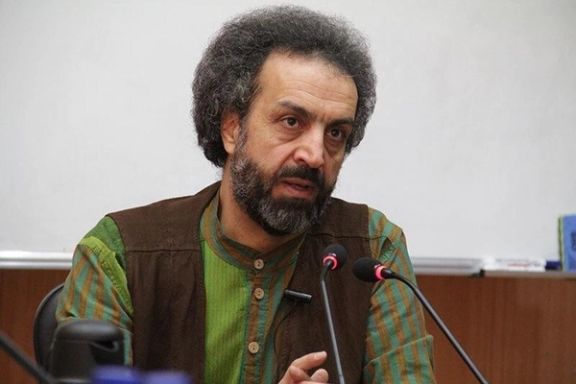Academic Warns Iran’s Khamenei Of A Dangerous Collapse

A prominent Iranian economist in a letter meant to reach Supreme Leader Ali Khamenei has said that the Islamic Republic is in the final stage of its downfall.

A prominent Iranian economist in a letter meant to reach Supreme Leader Ali Khamenei has said that the Islamic Republic is in the final stage of its downfall.
Mohsen Renani, a professor at Isfahan University, says that he gave his paper to former foreign minister Mohammad Javad Zarif to hand it to Khamenei some two months ago, but after a while Zarif came back and said he was unable to deliver the letter to Khamenei. Renani decided to publish it on the social media platforms Telegram.
In the letter he argued that the downfall of any entity or political or social structure has four stages, and its collapse happens with the fourth stage. He further argued that the Islamic Republic is now at stage 4 and it is not quite clear for how long it can resist the collapse.
Furthermore, Renani warned that attempting to bring about a revolution from the top to avoid the downfall will add to the probability of a collapse.
According to Renani, the downfall of any institution or government has two dimensions and four stages which take place one after another: The first dimension, is the subjective downfall which includes the two stages of collapse of efficiency and collapse of competency. The second dimension, the objective downfall, consists of the two stages of collapse of symbols and collapse of structures.
Likening the society to a family, Renani said that the subjective collapse takes place when one or both sides are disappointed by the other and their emotional relationship collapses like an emotional divorce. But when the family really collapses, and a separation takes place there is an objective collapse or a legal divorce. Now the members of the family have realized that the father figure is not capable of solving the family's economic and social problems. Then his competency collapses.

Iran, according to Renani has left behind the first three stages and is now in the final stage, that is the collapse of its structures. He argued: "We all know that Iran will go through a stage of transition from the current impasse, but we need to make sure that the government will choose the least costly way of transition. It depends on the government to relive the experience of South Africa and Chile, or the ones that happened to Libya and Syria. Iran's national interests call for thinking of a violent revolutionary development is the very last choice."
He added: "I publish this text to tell the families who have suffered during the protests and their children that their movement has had a great achievement. I also wish to tell those inside the system who wish to take a closer realistic look at the situation that perhaps there is still time to save the country."
Renani warned that a revolution from the bottom is inevitable. It can be averted only if change starts from the top, if there is still time for that. The government should not be deceived by relative calm. Instead of suppressing and humiliating the new generation, the government should consider understanding and respecting it and holding a dialogue with it.
It is only in that case that bringing about a change in the structure can facilitate Iran's future development in a less costly way. However, at the current stage even a reform from the top may not be able to save the system as it has lost its all credibility. Nonetheless, it is the only thing that can be done at this stage if the system can restore its credibility among the people, Renani said.
"I know that publishing this paper may enrage the government or it may make angry those Iranians who think a violent regime change is the only solution for Iran's crisis, but as an intellectual it is my responsibility to warn both sides," Renani reiterated.
Earlier, former Prime Minister Mir Hossein Mousavi had called for a regime change and former reformist President Mohammad Khatami said that reformists have no future in Iran although moving toward a regime change might lead to violence and chaos in Iran. The reform camp supported Khatami's view and some seventy politicians expressed their support for Mousavi's idea although he did not offer a roadmap for the next steps.
In Renani's model, following the decline of legitimacy and symbolism, i.e., when parents no longer maintain cordial relations with children, the structure of the system, here the family, also collapses and the family no longer live under the same roof. "The Islamic Republic, I believe, is standing on the threshold of this final stage," Renani maintained.